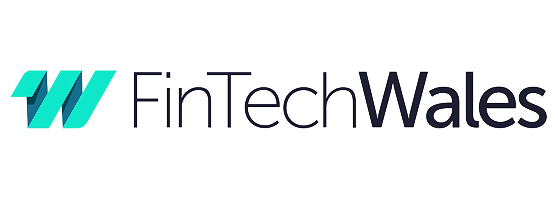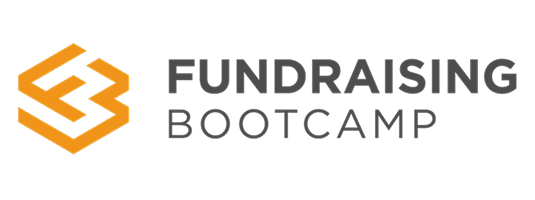Why Understanding Investor Types Matters for Startup Success
Understanding the different types of investors is crucial for startup founders navigating their funding journey. Each type brings different characteristics, expectations, and value propositions that founders need to carefully consider. Here’s our guide to some of the investor types you are most likely to encounter as a startup founder.
Friends and Family
Your first port of call when seeking funding might be friends and family. Friends and family are very often not professional investors, but those who want to support you as a person rather than necessarily judging the business as a whole.
Advantages
They can move much faster than other investors because they often won’t be applying the same degree of diligence. They’re often the first money into a business to help get it off the ground, and other investors will always feel more comfortable knowing they’re not the first ones to take a risk. Friends and family can help crowd in other types of investors
Potential challenges
Cheque sizes are inevitably going to be smaller, and they’re unlikely to ask the sorts of questions that other investors will ask you later. This means you might get some money in, but you’ll still need to be prepared for different types of questions from more discerning investors down the line. They’re also likely backing you as an individual or collection of individuals close to them, which means it’s not necessarily proof that your business idea is good. It might just be that they think you’re a good person.
Important consideration
Just because it might be the easiest source of early-stage funding doesn’t mean founders should always turn to it. You need to think carefully about whether it’s something the person you’re asking can actually reasonably afford, and whether they understand there’s a very high risk they could lose all their money.
How to find them
This is straightforward—approach your personal network, but be mindful of potential relationship complications that you don’t get with professional investors.
Angel Investors
Angel investors are often wealthy professionals with significant income or wealth that they want to allocate to early-stage company investing. They’re likely to be far more discerning than friends and family, and they usually see more businesses, so they’ve got better pattern recognition for common points of failure.
Advantages
They tend to write larger tickets than friends and family. Very often the best form of angel is someone who’s either a customer or prospective customer who likes your product so much they see significant market opportunity. Angels are often highly motivated and can be significant value-add—far more value than the nominal sum they’re investing—because they believe in the business and can act on that belief in a meaningful way.
Potential challenges
The way you treat your investors in terms of transparency is something to bear in mind, because of the social reach within investment networks that angels will often have. The reputation you build with those investors will have ramifications for other potential investments down the line. They often know funds as well, and funds may ask those angels what their experience has been as an investor in terms of transparency and how they think the business is actually going. And while it might seem trivial to get into the habit of doing investor updates monthly, it’s actually really difficult to prioritise versus running and growing the business.
How to find angel investors
You can find angels via our free investor search engine, or look at local angel investment networks. Very often, angels organised in syndicates will have either a geographic region they cover or be sector-specialised. There’s also the UK Business Angel Association (UK BAA) and there are SEIS/EIS funds which are often formed of angels. There is also a platform called Scribe that can look through Companies House filings to help you identify potential angel investors.
Early Stage VC Funds
Early stage VC funds are essentially professional investment vehicles that pool capital to deploy into startups. Some apply more rigorous diligence than others, and some have greater incentive to allocate all their capital rather than allocate it in the most effective way.
Advantages
Much larger funding rounds and professional expertise. You often find sector-focused or business model-focused funds because they feel that understanding specific sectors enables them to better assess potential and de-risk investment.
Potential challenges
Funds at almost all stages will want to apply far more diligence and often seek greater levels of control. This means greater rigor in company governance—regular board meetings, monthly investor updates, and sometimes board seats that have to be granted. As you take more money, you give up more control.
Key insight
There’s a recurring theme here—investors usually have certain knowledge advantages, whether geographically, business model, or sector-defined, and they’ll seek to leverage that to maximise their return.
How to find early stage VC funds
Asking existing investors can be very helpful because you can go through warm relationships. Having introductions is very powerful because someone is acting as a referee for your company. If you want to find funds that specialise in your sector, our free investor search engine can be helpful because it helps identify the right person at the right fund who is actively interested in your particular sector.
Private Equity
Private equity funds are professional investment vehicles that target more mature businesses, typically seeking majority stakes where they believe they can create additional value through operational improvements and strategic changes. They will often execute with a known time horizon in mind, by which point they would look to sell to another potential buyer of the business. Unlike venture capital, there are fewer private equity funds in the market, creating a more concentrated landscape of potential investors.
Advantages
Potential challenges
Private equity involvement typically means substantial changes to company culture and operational methods, which can lead to high staff turnover as employees struggle to adapt. The focus shifts heavily toward profitability metrics and financial performance. Since private equity firms usually take majority stakes, founders and existing management give up significant control over strategic direction and day-to-day operations.
How to find private equity investors
Platforms like shipshape.vc can provide visibility into private equity firms, particularly when raising larger funding rounds. On the platform, private equity firms become more active and visible for substantial transactions, which are often classified as investments but may function as partial or complete acquisitions.
The Bottom Line
Finding investment is essentially a marketing problem—you’ve got equity you want to sell, and you need to identify the most likely portion of the market who’s likely to buy. The best outcome is identifying the right person at the right fund who understands your sector, because they’ll be more likely to correctly assess your company’s value and provide meaningful support beyond just capital.
Ready to start your investor search? Start here (for free): Search Investors.












